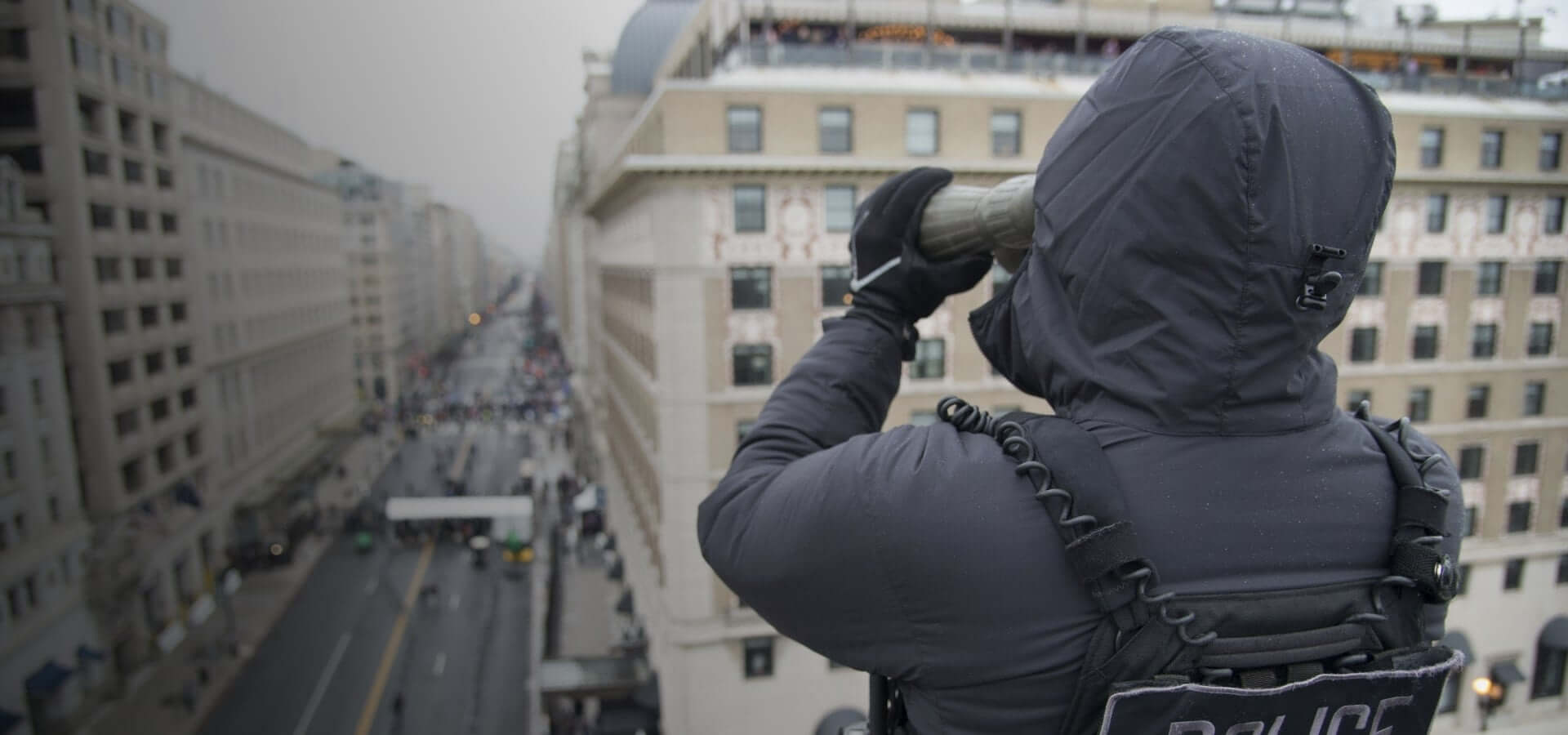FAQs for Uniformed Division Officer Positions
- Must be a U.S. citizen
- Must be at least 20 years of age at time of application and younger than 37 at the time of receipt of a conditional offer of employment to continue in the application process. Applicants with veterans’ preference must be at least 20 years of age at time of application and younger than 40 at the time of receipt of a conditional offer of employment to continue in the application process.
- Must have uncorrected vision no worse than 20/100 binocular; correctable to 20/20 in each eye (NOTE: LASIK, ALK, RK and PRK corrective eye surgeries are acceptable eyes surgeries for applicants provided specific visual tests are passed. The following are the waiting periods before visual tests are conducted after the surgery: LASIK–two months; PRK–six months; and ALK and RK–one year.) Applicants must meet the vision requirement at the time of application.
- Must be in excellent health and physical condition.
- Must pass an Applicant Physical Abilities Test.
- Must complete interviews and pass a written test.
- Must qualify for Top Secret clearance and undergo a complete background investigation including driving record check, drug screening, credit check, medical exam and polygraph examination.
- Must certify having registered with the Selective Service System or is exempt from having to do so, if either a female or a male applicant born after December 31, 1959
- Have no visible body markings (including but not limited to tattoos, body art, and branding) on the head, face, neck, hand and fingers (any area below the wrist bone)
There is no specific time frame, but the process is lengthy
Yes. An applicant can apply for both positions at the same time.
If an applicant fails the UDEE, they must wait three months before reapplying.
If an applicant fails the SUPER Interview, they can reapply in three months.
It is recommended to initiate the process no more than one year from terminal leave or end of service.
Active members of the U.S. armed forces would use a “Statement of Service” in lieu of a DD214.
Yes. Applicants who are active military must provide a copy of their current military orders in order for the application to the U.S. Secret Service to be placed on hold.
Yes. Uniformed Division officers can be an active drilling reservist or National Guard member.
No. An applicant may not negotiate their salary. Salary is based on experience, education, or both combined, but cannot be negotiated.
Special Need Pay-Setting Authority - Uniformed Division
Pursuant to the Uniformed Division Modernization Act of 2010, the Director of the United States Secret Service or the designee of the Director may appoint an individual at a rate above the minimum rate of basic pay for the Officer rank based on the individual’s superior qualifications or a special need of the Uniformed Division (UD) for the individual’s services (“special need pay-setting authority”).
Uniformed Division (UD) applicants who meet the following criteria may be given consideration for the special need pay-setting authority. Possession of these criteria is not a guarantee that an applicant will be eligible for this authority.
- Applicants who have successfully completed a state certified law enforcement (LE) training program, served in a LE capacity for more than 18 months, and are currently a state or local LE officer; OR
- Applicants who have successfully completed a Federal Law Enforcement (LE) training program, served in a Federal LE capacity for more than 18 months, and are currently a Federal LE officer; OR
- Applicants who have successfully completed a military LE training program and served in a military LE capacity for more than 18 months. If the applicant has separated from military service, he or she must have received an Honorable Discharge.
For an applicant who meets the above criteria, the following chart is to be used as a guideline to determine the applicant’s rate of pay under the special need pay-setting authority:
| Training, LE Experience, and Special Skills |
|---|
|
Completion of a State Certified LE Training Program Police LE experience > 18 months Currently working as a State or Local LE officer |
|
Completion of a Federal Law Enforcement Certified LE Training Program Federal LE experience > 18 months Currently working as a Federal LE officer |
|
Completion of one of the following certified LE training programs from the Armed Forces:
Military LE experience > 18 months. The recency and longevity of the applicant’s military LE time will also be considered. Currently or previously served in the capacity of a Military LE officer. If the applicant has separated from military service, he or she must have received an Honorable Discharge. |


